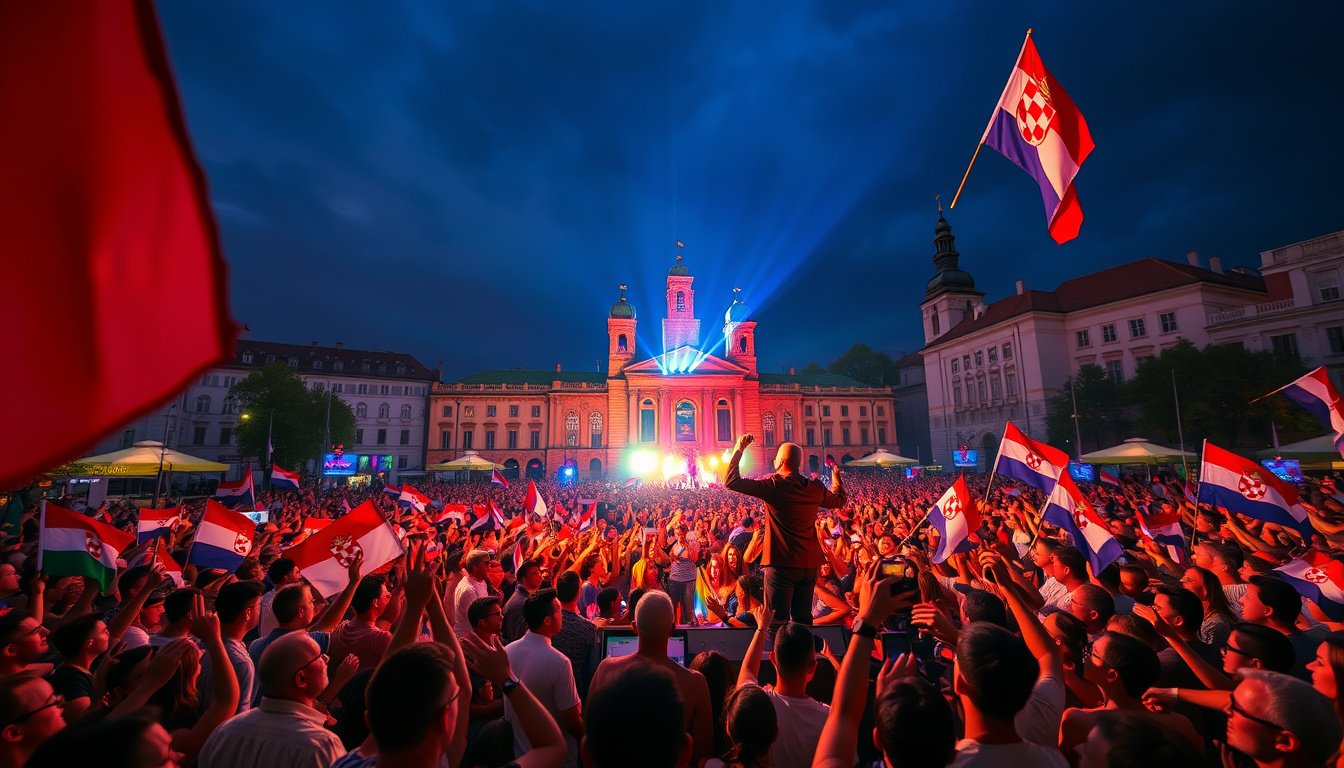Zagreb turned into a vibrant hub of music and nationalism as thousands gathered to witness the historic concert of a renowned Croatian nationalist singer.
This remarkable event not only broke previous attendance records but also sparked widespread conversation about its cultural implications and the messages conveyed through the performance.
In this article, we delve into the details of the concert, explore its significance in the context of Croatian identity, and analyze the reactions from both supporters and critics.
Join us as we take a closer look at this monumental night that resonated deeply within the hearts of many.

Key Takeaways
- The concert hosted in Zagreb marked a significant turnout with thousands attending.
- The event highlighted the cultural resonance of nationalist sentiment in Croatia.
- Reactions to the concert reflect a mix of pride and concern within the community.
Overview of the Concert Event
Live concerts have an unparalleled ability to create memorable experiences, drawing together fans from around the world.
The recent event featuring Croatian nationalist singer Marko Perković, also known as „Thompson,” in Zagreb is a testament to this phenomenon.
This concert not only attracted an impressive crowd but also set records, showcasing the enduring appeal of live performances.
As the show unfolded in front of thousands of enthusiastic fans, it paint a vibrant picture of unity and cultural celebration.
Such events highlight the significance of live music in connecting with audiences, allowing them to share collective emotions through powerful performances.
For concert-goers, whether you’re a die-hard fan or a curious newcomer, attending live shows like this presents an opportunity to immerse yourself in the energy, excitement, and atmosphere that only a live concert can deliver.
Cultural Impact and Reactions
The recent concert by a Croatian nationalist artist in Zagreb has revealed the profound cultural impact and societal responses that live music events can evoke.
With thousands in attendance, this record-breaking concert not only showcased a strong fan base but also sparked discussions about national identity, musical heritage, and the role of artists in shaping cultural narratives.
The energetic atmosphere highlighted how music can unite diverse groups, while also serving as a platform for political expression.
As audiences shared their reactions online, the event became a focal point for both celebration and controversy, illustrating the dual power of concerts to entertain while simultaneously stirring social reflections and debates.
As live music continues to thrive in various cultures, the layers of meaning embedded in these performances underscore their significance in understanding contemporary social landscapes.

